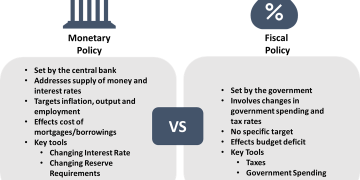Introduction
Cryptocurrencies have captivated global investors with promises of innovation, decentralization, and extraordinary returns. Yet, their extreme volatility—often marked by double-digit percentage swings within days—poses a challenge for those seeking stability. For many, the allure of blockchain technology remains compelling, but the risk of direct exposure to digital assets feels overwhelming. The good news? There is another path. Traditional equities, particularly those of established companies integrating blockchain into their business models, provide investors with a way to gain exposure to the transformative potential of blockchain without the same degree of turbulence.
This article explores why cryptocurrencies are volatile, identifies categories of blockchain-related traditional stocks, highlights specific companies leading the charge, and assesses the potential risks and rewards of this approach. By the end, investors will have a clearer understanding of how to balance innovation with relative stability in their portfolios.
Why Are Cryptocurrencies So Volatile?
Before turning to stocks, it’s important to understand why cryptocurrencies experience such dramatic price swings.
- Speculative Nature: Cryptocurrencies are largely driven by speculative trading. Unlike traditional equities backed by earnings, dividends, and tangible assets, most cryptos rely on sentiment and future expectations.
- Limited Liquidity: Compared to global stock markets, crypto markets are smaller in scale and often fragmented across exchanges, amplifying volatility.
- Leverage and Derivatives: Many traders use leverage, which magnifies both gains and losses. Liquidations in futures markets can cascade into sharp sell-offs.
- Regulatory Uncertainty: News of regulatory crackdowns or endorsements often triggers rapid moves. The lack of consistent global rules adds unpredictability.
- Nascent Technology: Technical issues—such as network congestion, forks, or security breaches—can create sudden shocks.
- Low Institutional Anchoring: While institutional adoption is growing, crypto remains retail-heavy, leading to herd behavior and momentum-driven trends.
For investors wary of this environment, blockchain-related equities offer exposure to innovation in a more regulated and structured market.
Blockchain as a Broader Technology
Blockchain’s applications extend far beyond cryptocurrencies. At its core, blockchain is a distributed ledger that offers transparency, immutability, and security. Industries across the spectrum—from finance to logistics, healthcare, and entertainment—are experimenting with blockchain solutions.
Key areas where blockchain adoption is accelerating:
- Financial Services: Settlement systems, cross-border payments, and tokenized assets.
- Supply Chain Management: Real-time tracking of goods, verification of authenticity, and reducing inefficiencies.
- Healthcare: Secure medical record storage and patient data sharing.
- Entertainment and Media: Digital rights management and non-fungible tokens (NFTs).
- Government Services: Identity verification and voting systems.
Investing in traditional stocks tied to these applications allows investors to capture blockchain’s broader economic impact without the instability of pure-play crypto assets.

Categories of Blockchain-Related Stocks
1. Technology Giants
Large-cap technology companies are incorporating blockchain into their platforms, cloud services, and enterprise solutions.
- Microsoft (MSFT): Offers Azure Blockchain services, enabling enterprises to build applications on secure distributed ledgers.
- IBM (IBM): A pioneer in enterprise blockchain solutions, focusing on supply chain, food safety, and trade finance.
- Amazon (AMZN): Through AWS, provides blockchain-as-a-service (BaaS), supporting developers and enterprises.
These companies combine the stability of diverse revenue streams with early leadership in blockchain services.
2. Payment Processors and Fintech
The integration of blockchain into payments and digital wallets positions fintech firms at the forefront of adoption.
- PayPal (PYPL): Offers cryptocurrency trading and storage while exploring blockchain for payment efficiency.
- Block, Inc. (SQ): Formerly Square, Block integrates Bitcoin into its Cash App and invests in blockchain development.
- Visa (V) and Mastercard (MA): Both are building blockchain-based settlement solutions and experimenting with stablecoin integration.
3. Semiconductor and Hardware Companies
Blockchain’s growth is inseparable from computing power. Hardware providers benefit from demand for chips that support mining, cryptography, and data processing.
- NVIDIA (NVDA): Supplies GPUs critical for blockchain mining and AI-driven blockchain applications.
- Advanced Micro Devices (AMD): Competes in GPU markets, also benefiting from demand linked to blockchain and gaming.
- Intel (INTC): Developing energy-efficient blockchain hardware solutions.
4. Exchanges and Market Infrastructure
Traditional exchanges are adapting to digital asset trends.
- CME Group (CME): Offers Bitcoin and Ethereum futures, enabling institutional investors to gain regulated exposure.
- Intercontinental Exchange (ICE): Owner of Bakkt, a platform offering crypto custody and trading services.
- Nasdaq (NDAQ): Provides market surveillance tools for crypto exchanges and explores blockchain-based settlement.
5. Enterprise Software and Data Services
Software firms integrating blockchain into enterprise systems enhance transparency and efficiency.
- Oracle (ORCL): Offers blockchain-based supply chain and contract management solutions.
- Salesforce (CRM): Provides blockchain platforms for customer and data management.
Case Studies: Companies at the Forefront
- IBM: IBM Food Trust uses blockchain to track food supply chains, enhancing safety and traceability. Retailers like Walmart rely on this system, showcasing real-world adoption.
- NVIDIA: Beyond gaming, NVIDIA’s GPUs power blockchain applications and AI models, positioning it at the convergence of two transformative technologies.
- PayPal: By allowing users to buy, hold, and spend crypto, PayPal bridges traditional finance with blockchain ecosystems.
- CME Group: As a regulated exchange, CME provides institutional-grade Bitcoin and Ethereum derivatives, legitimizing crypto as an asset class.
- Block, Inc.: With a strong fintech presence and active investment in blockchain development, Block serves as a hybrid between traditional equity and crypto-native exposure.
These companies illustrate the diversity of blockchain’s reach—from infrastructure to end-user applications.
Cryptocurrencies:
- Pros: High upside potential, decentralization, direct exposure to innovation.
- Cons: Extreme volatility, regulatory uncertainty, limited fundamental anchors.
Blockchain-Related Stocks:
- Pros: Backed by tangible businesses, less volatile, regulated environments, diversified revenue streams.
- Cons: Indirect exposure, blockchain may represent a small portion of revenues, traditional market risks.
For most investors, blockchain-related equities offer a “middle path”—exposure to innovation with greater downside protection.
Broader Investment Outlook
- Institutionalization of Blockchain: As major financial institutions adopt blockchain, related equities will benefit from credibility and scale.
- Integration with AI and IoT: Blockchain’s role in securing data and transactions across emerging technologies may expand revenue streams for tech companies.
- Regulatory Environment: Clearer global rules will reduce uncertainty and enable greater enterprise adoption.
- Sector Diversification: Beyond finance, blockchain’s spread into logistics, healthcare, and manufacturing broadens the investment case.
Risks to Consider
- Overhype Risk: Blockchain adoption may progress slower than expected, limiting revenue impact.
- Competition: Rapid innovation could erode competitive advantages.
- Macroeconomic Conditions: Rising interest rates or recessions could pressure valuations across tech-heavy equities.
- Crypto Correlation: While less volatile, some blockchain-related stocks still exhibit correlation with crypto price swings.
Conclusion
Cryptocurrencies may be too volatile for many investors, but blockchain technology itself is here to stay. By investing in traditional equities that embrace blockchain, individuals can gain exposure to transformative innovation while maintaining a more stable foundation. From technology giants like Microsoft and IBM to payment innovators like PayPal and Block, the landscape of blockchain-related stocks offers diverse opportunities.
In a world where innovation and stability often feel at odds, blockchain equities provide a compelling bridge. For investors seeking to balance participation in the digital future with the security of regulated markets, these stocks may represent one of the most strategic plays of the coming decade.
















































